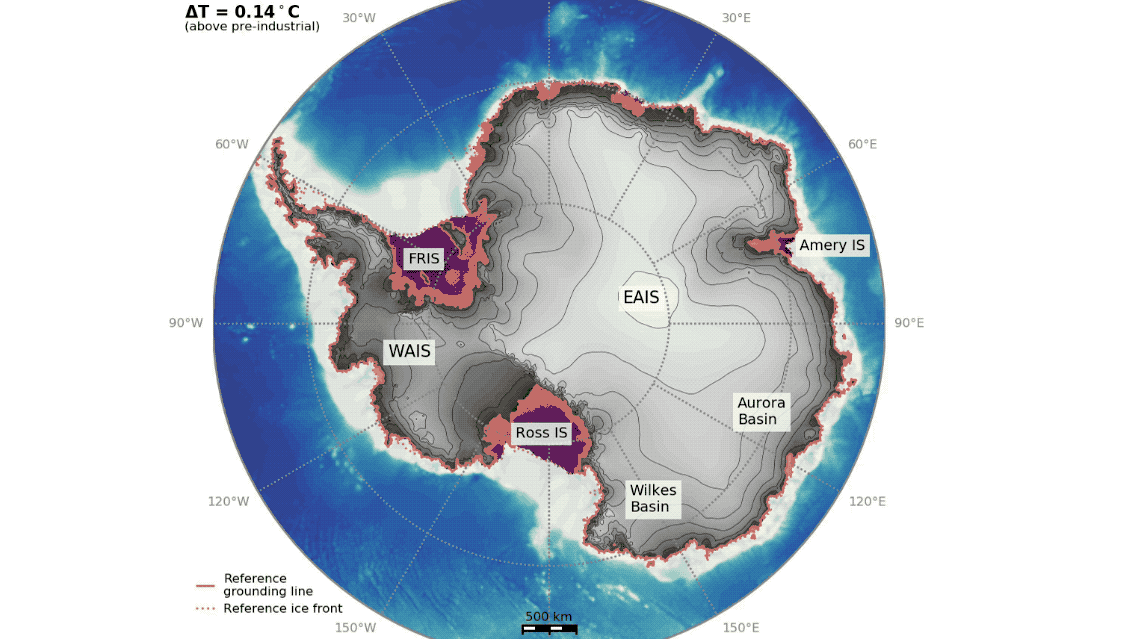
If global warming is allowed to continue unchecked, Antarctica will soon pass a "point of no return" that could reduce the continent to a barren, ice-free mass for the first time in more than 30 million years, according to a new study published Sep.
"Now our simulations show that once it's melted, it does not regrow to its initial state [until] temperatures go back to pre-industrial levels … a highly unlikely scenario.
In the study, PIK researchers ran computer simulations to model how Antarctica will look thousands of years from now, depending on how high average global temperatures rise in response to modern greenhouse gas emissions.
They found that, if average temperatures rise 7.2 degrees Fahrenheit (4 degrees Celsius) above pre-industrial levels for any sustained period of time, much of the ice in West Antarctica will crumble, resulting in 21 feet (6.5 meters) of global sea-level rise; that amount of rise would devastate coastal cities like New York, Tokyo and London.
This scenario could be a reality within decades; a global average temperature rise of 9 F (5 C) is currently considered the “worst-case” warming scenario if current greenhouse gas emission levels are allowed to continue through the year 2100, according to the UN’s Intergovernmental Panel on Climate Change (IPCC).
Should global temperatures rise between 11 and 16 F (6 to 9 C) above pre-industrial levels for any sustained period of time over the coming millennia, more than 70% of Antarctica's present-day ice will be lost "irreversibly," the study authors wrote.
And, if temperatures rise by 18 F (10 C), the continent is doomed to be "virtually ice-free." Should the continent lose all of its ice, global sea levels will rise by nearly 200 feet (58 m).
The Paris Climate Accord, which 73 nations agreed to in 2015 (and which the United States abandoned in June 2017 at the behest of President Donald Trump), aims to limit the planet's average temperature from rising by more than 2.7 F (1.5 C) above the preindustrial average, to forestall the worst effects of climate change.
While emissions dropped by a trivial amount earlier this year, due to mass quarantining during the pandemic, a UN report published earlier this month warns that the world is currently not on track to meet the goals laid out in the Paris Accord, with average global temperatures lingering around 2 F (1.1 C) above pre-industrial levels between 2016 and 2020